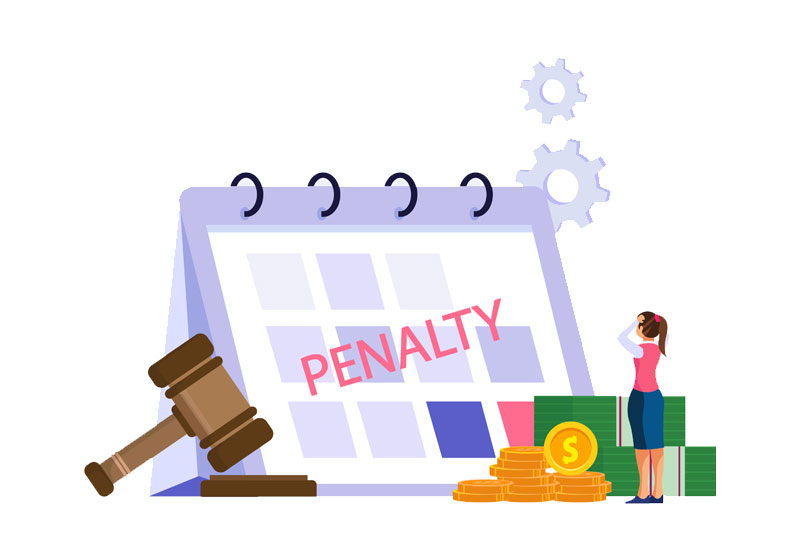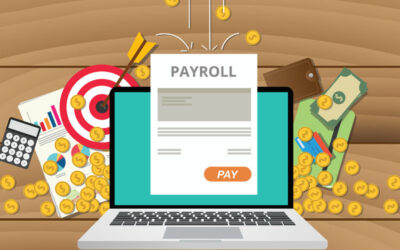While every business owner has a lot to think about, accounting and tax professionals have even more on their plates. In addition to their own business compliance tasks, many also handle various filings for their clients. So what happens if they miss or fall behind on any important requirements, such as ongoing business compliance filings (e.g., annual reports, license renewals); payroll tax withholdings, reports, and payments; quarterly and annual income tax returns and payments; or sales tax returns?
In this article, I’ll discuss the potential consequences for professional tax services providers and their clients (taxpayers) when tasks get forgotten and tax deadlines have been missed. I’ll also touch on options for resolving late filing and payment issues with government agencies.
How Do You Know If You Missed a Deadline?
If a client or professional has missed a tax deadline, the government agency to which the filing or payment was due will contact the taxpayer directly. The agency will not contact the tax professional. That communication is through a letter explaining the past due amount owed and any associated penalties. Such communication is sent through traditional mail, and not via email or phone.
Information in a past-due notice typically includes:
- Type of penalty
- Instructions for requesting abatement of or appealing the penalty
- Methods the taxpayer or their tax professional may use to contact the government agency (usually includes the options of mail, online, phone, or fax)
What Penalties May Apply?
Even when using the services of a licensed professional, the taxpayer ultimately owns responsibility for filing their returns and making payments on time. Generally, if a client’s accounting professional misses a tax filing deadline or payment, the client (not the services provider) will face financial penalties and be subject to interest on the late or missed filing or payment.
That doesn’t mean accounting and tax professionals have nothing to worry about. They could be held responsible if they behaved in a negligent or unprofessional manner or otherwise did not follow the professional standards for their industry. Under those circumstances, taxpayers may decide to sue the accounting professional for malpractice and report them to the IRS, the state board through which the professional is licensed, or other relevant agencies.
Federal Penalties
- Failure to File Penalty – This penalty applies if a taxpayer doesn’t file a tax return by the deadline. Note, if they file after the deadline, a failure to file penalty will still apply if the taxpayer does not have a valid extension to file their taxes. The penalty is 5% on the unpaid taxes for each month (or part of a month) after the deadline.
- Failure to Pay Penalty – This penalty applies when the taxpayer has filed but hasn’t paid the taxes owed by the deadline. Note that filing extensions only extend the filing deadline; they do not extend the time to pay taxes due. The penalty is 0.5% of the unpaid taxes for each month (or part of a month) that the balance due is not paid.
- Penalty Limits – Neither the Failure to File nor Failure to Pay penalty will exceed 25% of back taxes owed. If there’s both a failure to file and failure to pay penalty, then the failure to file penalty is reduced by the amount of the failure to pay penalty. The result is a combined penalty of 5%, levied each month (or part of a month) on the unpaid taxes until the balance is paid.
Interest on Underpayment of Estimated Tax
If a taxpayer hasn’t paid their estimated tax accurately or on time, they may have to pay interest on the amount they have underpaid. The IRS sets interest rates on a quarterly basis.
Quarterly Interest Rates for Tax Year 2022
- 1st Quarter: 3%
- 2nd Quarter: 4%
- 3rd Quarter: 5%
- 4th Quarter: 6%
Quarterly Interest Rates for Tax Year 2023
The IRS has announced that the first quarter 2023 interest rate is 7%.
Interest on Unpaid Tax Liabilities Penalties
Quarterly interest rates are applied until unpaid balances, including penalties, are paid in full.
Quarterly Interest Rates for Tax Year 2022
- 1st Quarter: 3%
- 2nd Quarter: 4%
- 3rd Quarter: 5%
- 4th Quarter: 6%
Quarterly Interest Rates for Tax Year 2023
The 2023 first-quarter interest rate is 7%.
State and Local Penalties
The penalties and interest that states and local government agencies enforce depend on their tax code and jurisdictional laws.
Keep in mind that although a filing is due to one government agency, any penalties or interest may be due to a different government agency. For instance, in California, the annual statement of information filing must be sent to the California Secretary of State. However, taxpayers must pay a $250 penalty to the California Franchise Tax Board if they’ve submitted their annual statement of information late.
What If You Don’t Pay the Tax Penalties?
A government agency might put a lien on the taxpayer’s property (or on tax refunds from other agencies) if the taxpayer has not paid the penalty, interest, or balance due. Notice of a lien arrives via a letter from the government agency to which the filing or payment is due to or the bank directed to divert the payment.
Typically, the accounting professional or the taxpayer may contact the agency collections department by mail, phone, fax, or online. Contacting the agency by telephone is usually the fastest method to get a hold put on the account so notifications and collection actions temporarily cease as the agency reviews the details.
The taxpayer may need to send a follow-up letter to request the removal of the lien from their account.
Can You Get Penalties Waived or Reduced?
Under some circumstances, agencies will grant a waiver or abatement (reduction) of a tax penalty. To request relief, the taxpayer or their accounting professional must typically send a letter to the agency issuing the penalty.
Critical details to include in the letter:
- Reference to the notice letter the taxpayer received from the agency
- The notice date
- The taxpayer’s name and tax identification number
- The tax year
- Description of the penalties and the reasons why they should be waived or reduced
Either the taxpayer or their accounting professional (to whom they’ve granted power of attorney) must sign the letter.
Another way taxpayers can potentially reduce penalties is to set up a payment plan with the agency for money owed. Different agencies have different criteria taxpayers must meet to qualify for a payment plan.
Can You Get Tax Penalty Relief?
If the taxpayer demonstrates reasonable cause and good faith, an agency might remove or reduce a penalty. Agencies determine qualification for relief on a case-by-case basis. Whether relief is granted may depend on the type of penalty and the applicable laws of the agency.
For instance, some government agencies might forgive a penalty if it’s the taxpayer’s first time receiving a penalty. For some penalties, like those related to underpayment of estimated tax, reasonable cause is not accepted as grounds for relief.
Situations generally not considered reasonable cause for failing to file or pay:
- Reliance on a tax professional
- Lack of knowledge
- Mistakes and oversights
- Lack of funds
Accountants and tax professionals can help their clients determine eligibility for penalty relief by researching the tax code and related laws of the government agency that issued the penalty.
Focus on Open Communication
Tax professionals can more easily help their clients determine if a penalty can be appealed, waived, or reduced — or a lien may be prevented or retracted — if they have all the necessary facts. That includes any tax penalty and lien notices the taxpayer has received, any information about why filing deadlines were missed, or any details on why payments were missed or submitted after their deadlines.
If you’re a tax professional who is struggling to keep up with your client’s ongoing compliance, consider joining CorpNet’s partner program for automation assistance and additional revenue streams.




